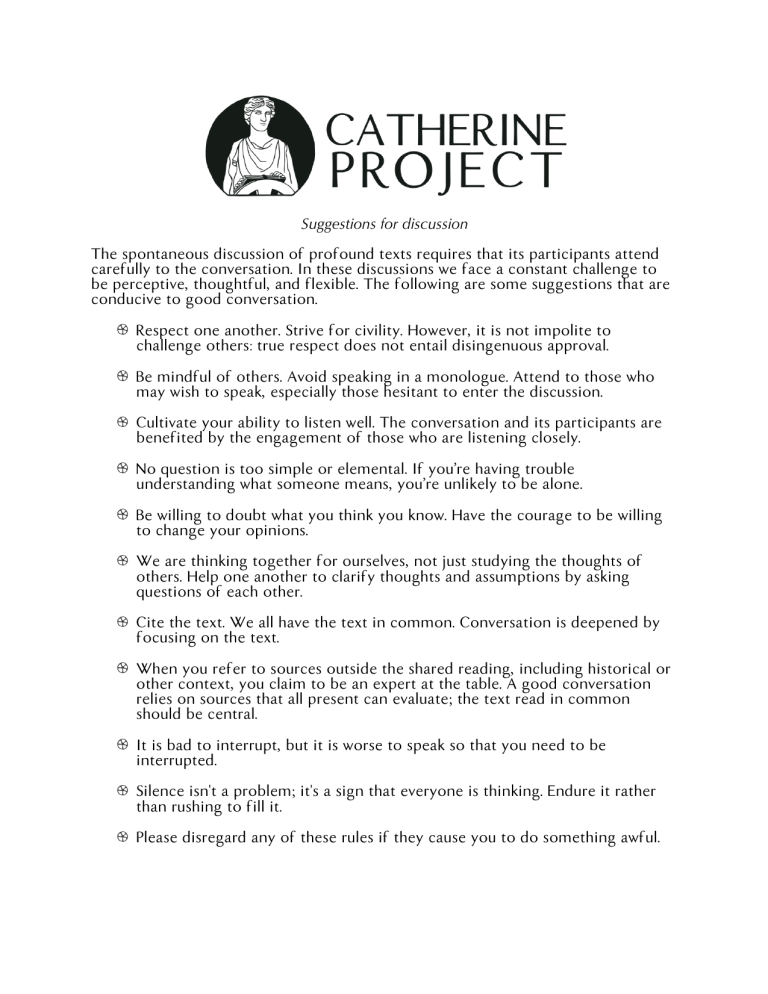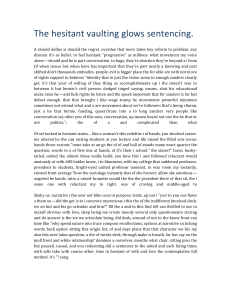
Suggestions for discussion The spontaneous discussion of profound texts requires that its participants attend carefully to the conversation. In these discussions we face a constant challenge to be perceptive, thoughtful, and flexible. The following are some suggestions that are conducive to good conversation. Respect one another. Strive for civility. However, it is not impolite to challenge others: true respect does not entail disingenuous approval. Be mindful of others. Avoid speaking in a monologue. Attend to those who may wish to speak, especially those hesitant to enter the discussion. Cultivate your ability to listen well. The conversation and its participants are benefited by the engagement of those who are listening closely. No question is too simple or elemental. If you’re having trouble understanding what someone means, you’re unlikely to be alone. Be willing to doubt what you think you know. Have the courage to be willing to change your opinions. We are thinking together for ourselves, not just studying the thoughts of others. Help one another to clarify thoughts and assumptions by asking questions of each other. Cite the text. We all have the text in common. Conversation is deepened by focusing on the text. When you refer to sources outside the shared reading, including historical or other context, you claim to be an expert at the table. A good conversation relies on sources that all present can evaluate; the text read in common should be central. It is bad to interrupt, but it is worse to speak so that you need to be interrupted. Silence isn't a problem; it's a sign that everyone is thinking. Endure it rather than rushing to fill it. Please disregard any of these rules if they cause you to do something awful.




